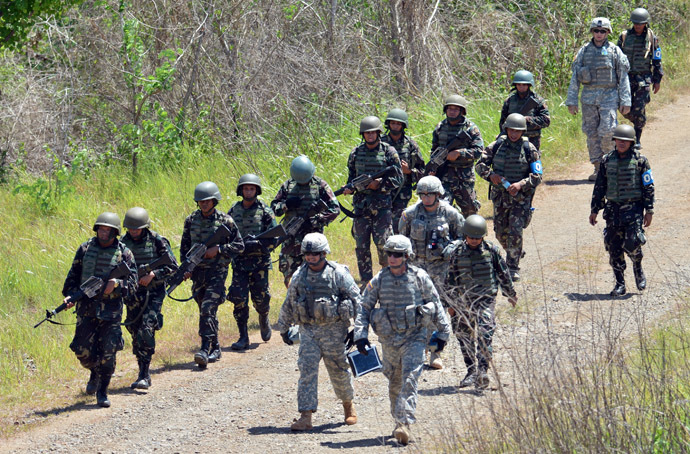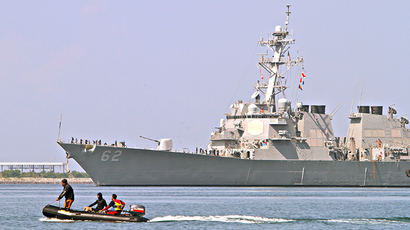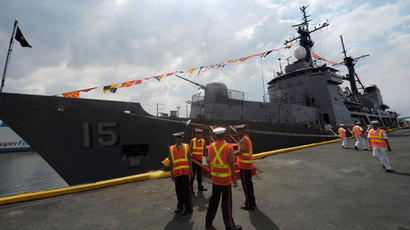Asia pivot: US set to boost military presence in Philippines
US forces are set for an “increased rotational presence” in the Philippines, following negotiations in Manila. The two countries aim to counter China’s growing ambitions in the region.
The Pentagon currently conducts a regular joint exercise and has
a rotating force of 500 troops in the Southern Philippines, but
may send more soldiers and advanced equipment, or upgrade local
facilities. Officials say that no specifics have been laid
out in the first round of a four-stage negotiation.
“There should be a focus on high-impact, high-value training
exercises and activities that would focus on maritime security,
maritime domain awareness and our perennial problem with
disasters,” said Defense Undersecretary Pio Batino, who was
present at the discussion.
The Philippines was a US colony between 1898 and 1946, and the
presence of American troops remains a controversial issue. The US
abandoned its last base in the South Asian country in 1992.
But tensions in the region have escalated as in the past decade
Beijing began to lay forceful claims to almost the entirety of
the South China Sea (which the Philippines calls West Philippine
Sea), that rounds the coastlines of most of the states in the
region.
As disputes over potentially lucrative sea lanes and underground
mineral resources have grown more bitter, Manila has made
diplomatic appeals to the UN over what it calls “excessive
claims”, and has sought greater assistance from the United
States.
After years of being bogged down in Afghanistan and Iraq,
Washington has also re-directed its foreign policy towards Asia,
signing a docking agreement for its warships with Singapore, and
bolstering its troop numbers in Australia.
Officials say that even when finalized, the new agreement will
not specify exact troop numbers, and those will have to be
negotiated on an annual basis.

Philippine officials have also sought to reassure the domestic
audience that the increased presence will only be allowed with
strict stipulations.
Foreign Affairs Assistant Secretary Carlos Sorreta, who led the
talks on his country’s side, told Reuters that the specific areas
where the US troops will be stationed were to be listed, as well
as their the activities and exercises. “But not the number of
troops, not the operational details," he added.
Sorreta emphasized that no US facilities could be off-limits to
Philippine officials (some have previously been denied access),
and insisted that the country will not host nuclear weapons, and
will not be used as a platform for “acts of
aggression”.
Not everyone is placated. Some politicians have objected both to
the substance of the agreement, and the fact that it is likely to
be signed only by the executive branch, without any input from
lawmakers.
“Any policy that the government wants to implement as regards our
security or military should undergo close scrutiny,” said
Senator Gregorio Honasan.
“It poses a lot of danger now that military troops and their
equipment will soon arrive in the country. It might create
an impression of hostility and just add to the on-going tensions
in our troubled waters.”
A heightened US military presence in the region to offset Chinese influence will only increase tensions, argues author and journalist Afshin Rattansi.
“The idea that the United States is protecting the interests of the world against Chinese influence is clearly absurd,” Rattansi told RT. “All the United States is doing is ratcheting up military tension and pressure at a time when the world doesn’t need it.”
Several dozen anti-American supporters also staged a protest
outside the main army base where the talks took place.
The next round of negotiations will take place in Washington
before the end of the month.













